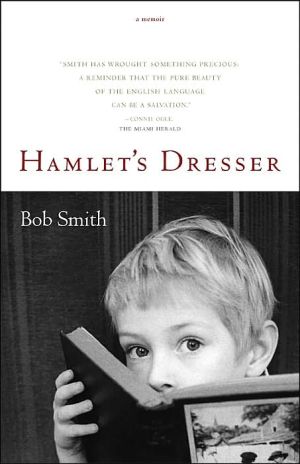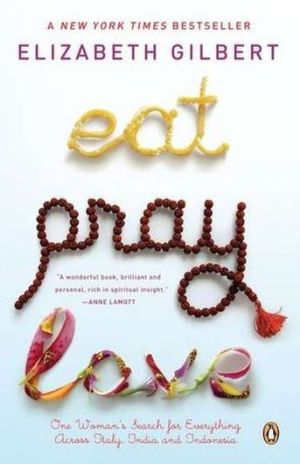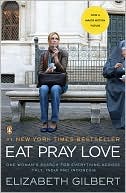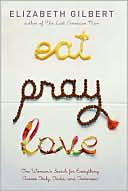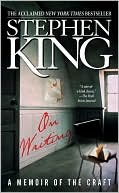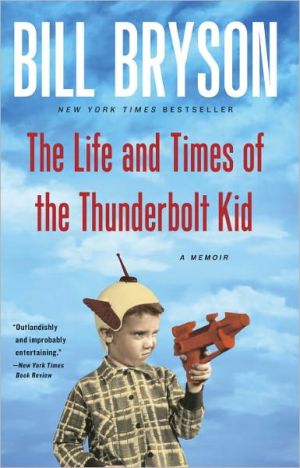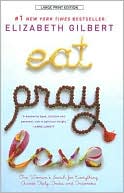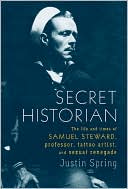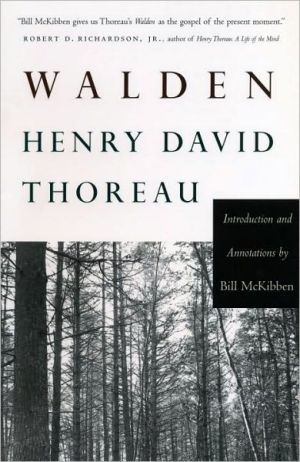Hamlet's Dresser: A Memoir
The true story of a boy whose life was saved by literature, Hamlet's Dresser is a portrait of a person made whole by art. Bob Smith's childhood was a fragile and lonely one, spent largely caring for his handicapped sister, Carolyn. But at age ten, his local librarian gave him a copy of Shakespeare's The Merchant of Venice, and it transformed him. In Bob's first look at Shakespeare's penetrating language — "In sooth I know not why I am so sad" — he had found a window through which to view the...
Search in google:
Bob Smith grew up in a town named for Shakespeare's birthplace: Stratford, Connecticut. His troubled childhood was spent in a struggle to help his devastated parents care for his severely retarded sister. But at age ten, Smith stumbled onto a line from The Merchant of Venice: "In sooth I know not why I am so sad." In the language of Shakespeare, he had found a window through which to view the world. When he was a teenager, the American Shakespeare Festival moved into Stratford and Smith became Hamlet's dresser. As he watched the plays from backstage, his life's passion took shape. "I was a lonely, screwed-up kid, but the circus had come to town," Smith writes. "It had put up its strange tent, and I was being seduced to run away with it." A few years later, he left home to travel with the Shakespeare Festival, and in the decades since, without a college credit to his name, he has taught the plays in universities and acting schools and prisons. For the past several years, he has probed the texts with thousands of the elderly in senior centers all over Manhattan. Here, in gorgeous, tender, and lyrical prose, Smith tells the story of a life shaped by poetry. Melding tragedy and comedy, he gracefully weaves together the stories of his bittersweet childhood, his poignant experiences with the old people, and dozens of illuminating passages and scenes from Shakespeare's plays. Throughout, Bob's sweet, tortured sister plays both the beautiful Ophelia and the ghost to Bob's Hamlet, haunting the book with heartrending power. Hamlet's Dresser is a redemptive memoir of a man made whole by art and an intimate encounter with the plays and sonnets that will make readers fall in love with Shakespeare again or for the first time. Publishers Weekly In this intimate, inspiring account, Smith concludes that words and ideas possess the ability to heal and transform a life no matter how dire and painful the circumstances, using his own difficult childhood and productive adulthood as proof. Here, the literary balm is the work of Shakespeare. The book opens with the death of one of the members of a group of seniors who gathered regularly in Manhattan to read the Bard's plays with Smith as their leader. Smith immediately shows his literary skill as he captures the humanity of his students. That sensitivity serves him well when he writes of his dysfunctional family (a traumatized mother, a distracted father and a disabled sister), revealing their shortcomings with clarity while seeking to understand his place in their lives and in the world. Smith adroitly assumes the role of observer and chronicler during his wry recollections of his topsy-turvy youth, while also examining how families can harm children emotionally with well-intended half-truths and neglect, as relatives make him feel he's somehow responsible for his sister's handicaps. Some of the most painful passages come during the unraveling of his mother's health while his father is at war, burdening young Smith further in caring for his increasingly troubled sister. Whether Smith is describing his alcoholic aunt, his spiteful grandmother or his aging students, his ability to juggle humor and pain never fails. Throughout this triumphant book, the shadow of Shakespeare looms, and Smith finds meaning in the plays to redeem his daily existence, eventually becoming Hamlet's dresser at the Stratford Shakespeare Festival, where he delights in the workings of theater and meeting Katharine Hepburn, Jessica Tandy and others. Veteran memoir readers will find this book absorbing, refreshing and touching. (June 4) Forecast: The inspirational element of Smith's triumph over hardship via art and literature, along with his heartfelt writing, should lift sales above those of the myriad similar books on the market. Smith's volunteer and teaching work with seniors and youth, in which he uses Shakespeare's timeless words, will draw readers who love "feel-good" stories. Copyright 2002 Cahners Business Information.
Prologue\ What should we speak of\ When we are old as you? When we shall hear\ The rain and wind beat dark December? How\ In this our pinching cave shall we discourse\ The freezing hours away?\ — Cymbeline, 3.3\ \ Zoe died. There'll be a service someplace in Jersey, but not until late April. Zoe was in the original group of old people who came to me for Shakespeare. She couldn't bear Cymbeline. She turned her nose up at all the late plays.\ "I'm eighty-one," she'd scowl. "Time to say what's on my mind." What was on her mind was that, at forty-six, William Shakespeare'd run out of genius.\ "What about The Tempest," I'd plead, "or Winter's Tale?"\ "Robert, dear...." She'd twist her face into a mock sourpuss. "You are grotesquely sentimental." She was wrong about Shakespeare but probably dead right about me.\ Zoe was no worshiper, except for dance. She adored the ballet. Her dreary one-bedroom apartment in the Penn South middle-income housing project was a grotto shrine of dusky ballet slippers swaying on shimmering ribbons. Whose? I always wondered. Zoe had never been a dancer. She was short and stout. By the time I knew her she had close-cropped snow-white hair and always wore a particular black dress. It was her uniform, and was usually a repulsive collage of food stains and dandruff. The dress was a mess but Zoe wasn't. She'd worked as some kind of math genius. Retired, she devoted her time to culture.\ One day I made the mistake of telling her that I was on my way to see the movie Babe. She acted betrayed. "Talking pigs?" she winced. "Don't expect George Orwell." Zoe disdained the intellectually puny with an exaggerated roll of her eyes and an agitated pinch of her small wrinkled mouth. But despite the protest, an hour later there she was at the multiplex, propped up in an aisle seat in her awful dress and a worse shawl, waiting sour-faced to prove herself right. God, how I love old people.\ For ten years I've been reading Shakespeare with seniors. I'm no scholar. I've got no formal education past high school. But in run-down centers and sleek over-air-conditioned Manhattan auditoriums, I pore over the texts with hundreds of unsentimental octogenarians.\ Zoe was ringleader for a group of women who'd grown up on the Lower East Side. Seventy years later they still traveled as a gang. Navigating the crisscross grid of New York City bus routes, they transferred to movies, ballet, and Shakespeare. Eventually they found me and immediately started acting like a fan club. They'd show up wherever I was speaking. For a while, in restaurants, they'd huddle together a few tables away, mooning over me like bobby-soxers. The old ladies would have the waiter bring me a glass of red wine. They'd gesture a toast.\ "We don't mean to bother you," they'd coo. "We're just so excited about the Shakespeare that we couldn't wait till next week."\ It's almost impossible to say how much it meant to have those tart old women on my side. Love in the romantic sense has mostly skipped past me. I have no children, no witness who's been with me the whole way. My childhood was consecrated to a sick sibling and I never completely emerged from that darkness. Those geriatric cheerleaders gave something I hadn't had since my grandparents.\ For a while Zoe acted like a smitten seventh grader. She'd shove bunched-up notes into my fist. They weren't personal in the ordinary way. They were about Shakespeare.\ "Merchant?" was scrawled on an envelope she dropped into my bag. Inside, she'd neatly written an appeal.\ Dearest Professor (Zoe got a kick out of ennobling my status), \ What would you think of us reading the Merchant of Venice next? Many in the group are Jewish. Is the play anti-Semitic? Please consider this a respectful request.\ \ Your admiring student,\ Zoe\ \ \ \ The morning we started Merchant there were eighty people jammed into the back room of the senior center.\ Ten minutes into the play, Zoe's hand shot up, her patience already worn thin. "He's of his time," she pronounced. "William Shakespeare's no philosopher. He's not a deity. Shakespeare's depicting the world, not fixing it."\ Eventually we landed on the scene where Shylock's daughter elopes. Knowing she'll break her father's Old Testament heart, Jessica steals his money, some cherished jewels, and at night, disguised as a page, runs off with a Christian boy.\ JESSICA Here, catch this casket, it is worth the pains.\ I am glad 'tis night — you do not look on me, —\ For I am much asham'd of my exchange:\ But love is blind, and lovers cannot see\ The pretty follies that themselves commit,\ For if they could, Cupid himself would blush\ To see me thus transformed to a boy.\ LORENZO Descend, for you must be my torch-bearer.\ JESSICA What, must I hold a candle to my shames? —\ They, in themselves (goodsooth) are too too light.\ Why, 'tis an office of discovery (love),\ And I should be obscur'd.\ LORENZO So are you (sweet)\ Even in the lovely garnish of a boy.\ But come at once,\ For the close night doth play the runaway,\ And we are stay'd for at Bassanio's feast.\ JESSICA I will make fast the doors and gild myself\ With some moe ducats, and be with you straight.\ — The Merchant of Venice, 2.6\ \ When I paused, a woman at the back stood up as stiffly as a kid in parochial school and in a thick New York accent she said, "Salvatore Massuchi."\ At first it sounded like a single word: "salvamusuchi." Italian? Maybe Latin? The room was packed with retired teachers. Was it some obsolete syndrome in rhetoric? My usual pang of undereducation pricked.\ "He was a boy on Mulberry Street." The old woman smiled. "He lived right across the air shaft. My mother warned me never to look at him. We were Orthodox Jews. My father was strict. My little brothers wore payess."\ The woman watched all of us watching her. "Salvatore Massuchi had beautiful eyes and shiny hair like chocolate. He was so handsome in his Saint Francis Xavier Grammar School uniform. We never spoke to each other, not even in July standing together in line at the ice wagon. Then one day my mother said that the Italians on four had moved to New Rochelle or Rye, some exotic-sounding place north of the city."\ "What about Salvatore Massuchi?" I asked.\ "My daughter married an Italian. I think I encouraged her because in 1919 I wasn't even allowed to look. My husband's been dead for ten years. I've never thought of another man, but while you were reading I kept picturing Salvatore Massuchi. I don't know anything about literature, but I think maybe Shakespeare's not mad at Jessica."\ In the front row Sara raised her hand. I don't think I'd ever heard her voice. Zoe usually did the talking. "That's exactly how it was, just like she said, religious parents new to America, but trying to stay faithful to the past. Now that I'm old it's easy to see what a difficult balancing act it was."\ She looked at me for a minute. "I'm on Jessica's side, too. Venice for a Jewish kid must have been a little like Mott Street." The old maid got angry. "Damn it, Jessica's got a right to her own happiness."\ Everyone laughed, and for a few minutes some very old women said the names of little boys who hadn't quite faded into the abyss of memory, Salvatore Massuchi, Mike O'Rourke, Frankie somebody, Billy...\ My heart, sweet boy, shall be thy sepulchre, For from my heart thine image ne'er shall go. \ — King Henry VI, Part III, 2.5\ \ It's eight years later and I'm starting to read Hamlet with a huge group of old people at the Ninety-second Street Y.\ Enter Barnardo and Francisco, two sentinels. \ BARNARDO Who's there?\ FRANCISCO Nay, answer me. Stand and unfold yourself.\ — Hamlet, 1.1\ \ When I talk about the plays I unfold myself to myself, and sometimes hidden in the folds are forgotten events that can, for a moment, make the standing a little harder. Some days, discussing four-hundred-year-old words with the elderly, it's about ghosts. Zoe's dead, so's Sara, maybe even the woman who'd loved Salvatore Massuchi, and that's an important part of it, too. The impermanence of life is all around me. What's left is memory. It's such a huge part of Shakespeare, so many specters and resurrections, so much haunting from the past.\ In its own way, my life is a resurrection and I am most certainly haunted by a delicate and undismissible ghost.\ Right after I started reading Shakespeare with old people, I decided to move back to where I was born. I rented a tiny dilapidated house that was built before the American Revolution, 1770. I live near a river, a mile or so above where it meets Long Island Sound. I've come back hoping to find something I dropped in my first desperate need to leave. At twenty-one I had run from an unhappy childhood and, too young to know better, I thought I could hide from memory.\ For almost forty years, it was as if I'd hidden something deep in the breast pocket of a coat that I no longer wear. Every so often, I'd put the coat on and tentatively reach into the pocket half believing my buried thing wouldn't be there anymore, expecting it to have crumbled with age and neglect or to have simply disappeared. It never has. It never will, because it's not a thing, it's a person.\ When I was twenty-one and my retarded sister was almost eighteen, my parents decided that we could no longer care for her. The decision was made to find a place for Carolyn to spend the rest of her life. A "school" was selected that met with what my family could afford. It's a state institution.\ The day she left, my father asked if she wanted to do her favorite thing — take a ride. She bounced toward the car with her bizarre, palsied gait, her hands — her beautiful long thin pale hands — twisted grotesquely around each other and held high just under her chin. She always shook with excitement at the idea of a ride. She's fifty-seven now and I'm told that she still shakes wildly when there's a ride and ice cream. I haven't seen her do it since that day so long ago, when she left our house and my life forever. It's like one of those late, melancholy, Shakespeare plays that mathematical Zoe never understood.\ Six weeks after Carolyn went away to the Southbury Training School I was allowed to visit her. Until then she had to be acclimated to the place. It was a world she could not have known existed, and as the only world she did know, we couldn't interfere. The waiting passed painfully. The worst of my own terrors of abandonment haunted me. I couldn't stop the pictures in my mind of how afraid and lonely she must feel.\ Finally the day came to see her. I was terrified. I felt sick all the way on the long drive. How could I just walk out after a visit? How could I see her often? Was it more hurtful to come and not take her home? It tore at me. I was young.\ When we reached the Southbury Training School we drove up the hill to a tall, mock Georgian brick building. It was a cliché of the 1930s institution. I asked my parents if I could go in alone to get her. I needed my first reaction for just me and her. It was hard to see her again, here, to know that I would just stay awhile and then go back to New York and leave behind this person who in many ways I knew much better than I knew myself.\ Inside I asked a friendly nurse for directions. As I went up the iron stairs and down the long white hall I could hear my sister. She was saying my name over and over. She knew very few words — car, go to bed, Bobby. Even now in my old red house by the river all these years later I can hear her voice, her young lost voice, singsong — "Bobby...Bobby...Bobby."\ I took her carefully down the stairs and out into the October sunlight. We walked hand in hand to my parents' car and got into the backseat. We went for a ride in the beautiful Connecticut countryside, and at a certain point my father pulled the car off the road. I think it was somewhere on the school's property. There was a hill and a cornfield. I helped my sister out of the car. I took Carolyn's beautiful hand and together we carefully climbed the hill. The October air was wonderful. There was a warm wind. I remember thinking that my parents, in the distance below, seemed little and old and lost, standing by our car. I took Carolyn through the rows of corn. There was a stone wall to sit on with a view of the beautiful Connecticut valley with all its autumn color. I was overcome by sadness. I didn't drive. I couldn't get back on my own. I said out loud to no one, "Why did they give you a brute's haircut? I've always loved your hair. I've always loved you. I've always taken care of you. Please let me go!"\ There is a willow grows askant the brook\ That shows his hoary leaves in the glassy stream.\ Therewith fantastic garlands did she make\ Of crow-flowers, nettles, daisies, and long purples,\ That liberal shepherds give a grosser name,\ But our cold maids do dead men's fingers call them.\ There on the pendant boughs her crownet weeds\ Clamb'ring to hang, an envious sliver broke,\ When down her weedy trophies and herself\ Fell in the weeping brook. Her clothes spread wide,\ And mermaid-like awhile they bore her up,\ Which time she chanted snatches of old lauds,\ As one incapable of her own distress,\ Or like a creature native and indued\ Unto that element. But long it could not be\ Till that her garments, heavy with their drink,\ Pull'd the poor wretch from her melodious lay\ To muddy death.\ — Hamlet, 4.7\ \ Copyright © 2002 by Bob Smith
\ From Barnes & NobleBarnes & Noble Discover Great New Writers\ There are times in everyone's life when they need a hand; we all face difficult moments when we reach out to family, friends, or loved ones for support. For Bob Smith, a boy growing up in trying circumstances in Stratford, Connecticut, in the 1940s and '50s, the hand was William Shakespeare's. The legendary playwright (who toiled in a different Stratford entirely) and his plays became a support system for Bob, who -- in addition to the usual obstacles faced by youngsters -- felt somehow responsible for his beloved younger sister Carolyn's mental retardation. Now in his 60s, Smith looks back on his life in Hamlet's Dresser, one of the most beautifully written and unforgettable memoirs in some time. \ Smith takes the reader through a variety of different periods in his life: his youth, as his overmatched parents try to deal with their beautiful yet frustratingly difficult daughter (with Carolyn unable to control her bodily functions, brother Bob assumes responsibility as full-time caregiver, despite his youth); adolescence, as Bob's love of Shakespeare's plays leads to a dream job as costume dresser to actors performing with the American Shakespeare Festival in Stratford; and the present-day Bob, who spends his time selflessly teaching elderly students to enjoy "the Shakespeare." All of it is presented in a beautifully evocative manner.\ But it is Smith's writing about his intense -- and troubled -- relationship with Carolyn that makes the book so emotionally powerful. It's difficult to really understand how hard it must have been for a boy to take care of someone so mentally challenged that she, at one point, literally spent years standing next to the family's refrigerator, unwilling to move or go to sleep. But Bob loves Carolyn, so he does what he can. When it's time for him to leave home to start his own life, a difficult decision must be made about Carolyn's future, and the reader will be riveted to the page.\ When he needed help, Bob Smith was, essentially, saved by Shakespeare. It's not hard to imagine that the readers of Hamlet's Dresser might find a savior of sorts in Bob Smith. (Nicholas Sinisi)\ From Barnes & Noble Discover Great New Writers\ Bob Smith's unforgettable memoir reads like a novel. His story slips gracefully through time, moving from his lonely childhood with a severely retarded sister, through an adolescence spent acquiring what would become a lifelong love of Shakespeare, to his present, as a man finding himself through his work with the elderly.\ In a disheartening childhood with a distant father and a clingy, terrified mother, Smith vows never to leave his lovely, uncomprehending sister. For years, he is both her caretaker and her companion, until the need to live his own life becomes a pull too strong to resist. Slowly, Smith drifts away from his family and into a theatrical world inhabited by actors and extras who, like him, are sustained by the wonder of language. But when he finally leaves his sister for good, Smith experiences an emptiness that he finds mirrored in the Shakespearean tragedies, a melancholy that continues to haunt him. Ultimately, it is through sharing his passion for Shakespeare with others that Smith begins to find healing and redemption.\ For all of its darkness, Hamlet's Dresser is a story imbued with hope. Smith shares priceless memories of some of Hollywood's grandest luminaries, as well as moments of heartbreaking beauty and clarity among the "old people" who have touched his soul. Perhaps, with the telling of his story, Bob Smith will finally "get to be the happy kid [he] never was." (Summer 2002 Selection)\ \ \ \ \ \ Publishers WeeklyIn this intimate, inspiring account, Smith concludes that words and ideas possess the ability to heal and transform a life no matter how dire and painful the circumstances, using his own difficult childhood and productive adulthood as proof. Here, the literary balm is the work of Shakespeare. The book opens with the death of one of the members of a group of seniors who gathered regularly in Manhattan to read the Bard's plays with Smith as their leader. Smith immediately shows his literary skill as he captures the humanity of his students. That sensitivity serves him well when he writes of his dysfunctional family (a traumatized mother, a distracted father and a disabled sister), revealing their shortcomings with clarity while seeking to understand his place in their lives and in the world. Smith adroitly assumes the role of observer and chronicler during his wry recollections of his topsy-turvy youth, while also examining how families can harm children emotionally with well-intended half-truths and neglect, as relatives make him feel he's somehow responsible for his sister's handicaps. Some of the most painful passages come during the unraveling of his mother's health while his father is at war, burdening young Smith further in caring for his increasingly troubled sister. Whether Smith is describing his alcoholic aunt, his spiteful grandmother or his aging students, his ability to juggle humor and pain never fails. Throughout this triumphant book, the shadow of Shakespeare looms, and Smith finds meaning in the plays to redeem his daily existence, eventually becoming Hamlet's dresser at the Stratford Shakespeare Festival, where he delights in the workings of theater and meeting Katharine Hepburn, Jessica Tandy and others. Veteran memoir readers will find this book absorbing, refreshing and touching. (June 4) Forecast: The inspirational element of Smith's triumph over hardship via art and literature, along with his heartfelt writing, should lift sales above those of the myriad similar books on the market. Smith's volunteer and teaching work with seniors and youth, in which he uses Shakespeare's timeless words, will draw readers who love "feel-good" stories. Copyright 2002 Cahners Business Information.\ \ \ Library JournalLike the petals of daisies and long purples the maddeningly aggrieved Ophelia tore and shaped into a garland before she drowned, Smith's memoir tenderly breaks your heart into pieces and, with the sagacious insight derived from a lifetime of Shakespearean study and familial suffering, weaves it into a resplendent crown of joy. Smith grew up in Stratford, CT, and came of age during the 1950s. The two defining leitmotifs of his life, life with his profoundly retarded sister, Carolyn, and his head-over-heels love of Shakespeare that began when he discovered The Merchant of Venice in the fifth grade, constitute the material of this beautiful, sad, and wonderful story. The narrative gracefully oscillates between past and present, juxtaposing family stories and dynamics with teaching Shakespeare to the elderly in New York City. These observations are joined seamlessly with dead-on passages from Shakespeare's plays and sonnets, with which Smith exhibits a preternatural familiarity. When he was a teenager, Smith became a dresser for the American Shakespeare Festival in Stratford, and his anecdotal tales of theater legends like John Houseman, Morris Carnovsky, Katharine Hepburn, and Bert Lahr are priceless. Smith is the teacher we all should have had to introduce us to Shakespeare. Fortunately, he has given us this bejeweled book. Recommended for all libraries. [Previewed in Prepub Alert, LJ 2/15/02.] Barry X. Miller, Austin P.L., TX Copyright 2002 Cahners Business Information.\ \ \ \ \ Kirkus ReviewsDisjointed memoir of a troubled family, a retarded sibling, and salvation via Shakespeare. Smith grew up in Connecticut. When his father went off to WWII, his mother was left to cope with the demands of raising two children. The younger, Carolyn, was severely retarded and in need of almost constant care. With a father unable to show love and a mother overwhelmed and dissatisfied with her marriage, Bob saw himself as his sister's special friend and protector. As Carolyn's illness worsened, Bob sought escape at the Metropolitan Museum of Art and in the language of Shakespeare, whose poetry distilling life's sad complexities offered the young man strength and serenity he found nowhere else. Drawn to the theater, he worked on Shakespearean productions at Stratford, Connecticut, serving as a dresser for such well-known actors as Katharine Hepburn and Morris Carnovsky, studied acting himself, and later conducted workshops on the playwright for elderly New Yorkers. There's a lot going on in Smith's memoir. He ably portrays his relatives and depictions of a child's enthrallment with the footlights. The backstage accounts of close encounters with the famous are also well-done, although the most interesting aspect, which perhaps deserves more emphasis, is his discovery that many senior citizens are inclined to develop an obsessive interest in Shakespeare. Smith's own passion for the Bard of Avon might have been more fully explained, not because a love of Shakespeare is so hard to understand, but because it is the memoir's primary conceit. And while the author is to be commended for his honesty, it comes as something of a letdown to learn in the final pages that he did not visit Carolyn for 40 yearsafter the family put her in an institution. Alternately touching and informative, but it fails to cohere.\ \
